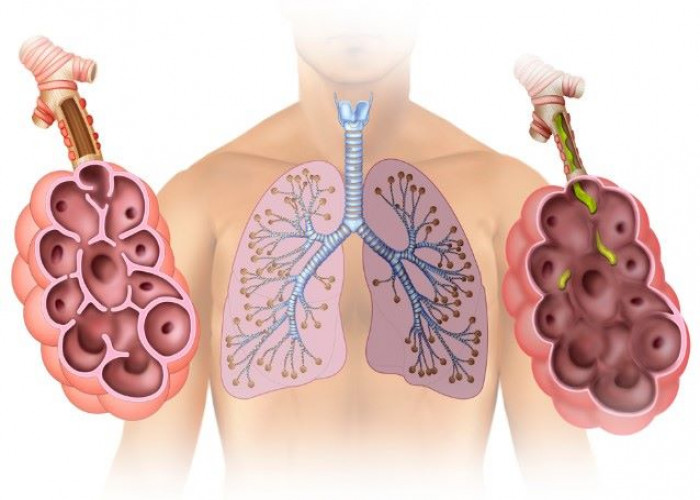 Welcome
Welcome
“May all be happy, may all be healed, may all be at peace and may no one ever suffer."
Emphysema
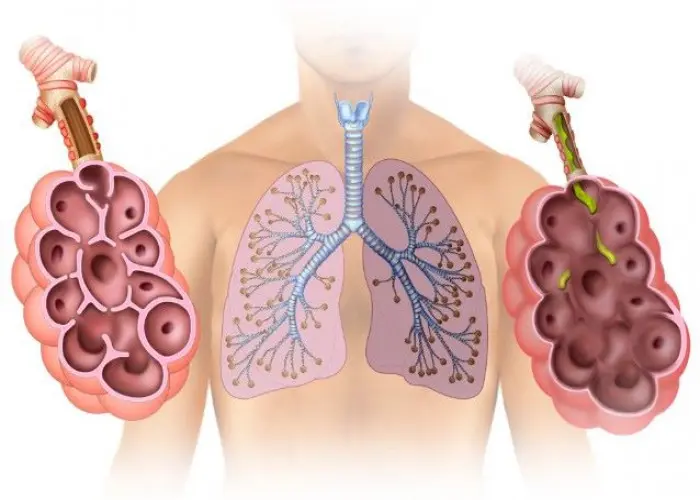
Emphysema is a type of chronic obstructive pulmonary disease (COPD) that affects the air sacs (alveoli) in the lungs. In emphysema, the walls of the air sacs become weak and break down, causing the sacs to lose their elasticity and making it difficult for air to be exhaled.
The most common cause of emphysema is cigarette smoking, but long-term exposure to other lung irritants such as air pollution, chemical fumes, and dust can also contribute to the development of the disease.
Symptoms of emphysema include shortness of breath, coughing, wheezing, chest tightness, and fatigue. Over time, the condition can progress and cause severe breathing difficulties that can limit the ability to perform daily activities.
Emphysema is typically diagnosed through pulmonary function tests, chest X-rays, and CT scans. Treatment may involve medications to manage symptoms, such as bronchodilators and steroids, as well as oxygen therapy to improve breathing. In some cases, surgery, such as lung volume reduction surgery or lung transplantation, may be necessary to improve lung function.
Prevention of emphysema involves avoiding exposure to lung irritants, such as cigarette smoke and other environmental pollutants. If you smoke, quitting is the most important thing you can do to prevent the development and progression of emphysema. Additionally, maintaining a healthy lifestyle, including regular exercise and a balanced diet, can help manage the condition and improve overall health.
Research Papers
Disease Signs and Symptoms
- Shortness of breath (dyspnea)
- Blue lips (cyanosis)
Disease Causes
Emphysema
The main cause of emphysema is long-term exposure to airborne irritants, including:
- Tobacco smoke
- Marijuana smoke
- Air pollution
- Chemical fumes and dust
Rarely, emphysema is caused by an inherited deficiency of a protein that protects the elastic structures in the lungs. It's called alpha-1-antitrypsin deficiency emphysema.
Disease Prevents
Emphysema
To prevent emphysema, don't smoke and avoid breathing secondhand smoke. Wear a mask to protect your lungs if you work with chemical fumes or dust.
Disease Treatments
Emphysema and COPD can't be cured, but treatments can help relieve symptoms and slow the progression of the disease.
Medications
Depending upon the severity of your symptoms, your doctor might suggest:
- Bronchodilators. These drugs can help relieve coughing, shortness of breath and breathing problems by relaxing constricted airways.
- Inhaled steroids. Corticosteroid drugs inhaled as aerosol sprays reduce inflammation and may help relieve shortness of breath.
- Antibiotics. If you have a bacterial infection, like acute bronchitis or pneumonia, antibiotics are appropriate.
Therapy
- Pulmonary rehabilitation. A pulmonary rehabilitation program can teach you breathing exercises and techniques that may help reduce your breathlessness and improve your ability to exercise.
- Nutrition therapy. You'll also receive advice about proper nutrition. In the early stages of emphysema, many people need to lose weight, while people with late-stage emphysema often need to gain weight.
- Supplemental oxygen. If you have severe emphysema with low blood oxygen levels, using oxygen regularly at home and when you exercise may provide some relief. Many people use oxygen 24 hours a day. It's usually administered via narrow tubing that fits into your nostrils.
Surgery
Depending on the severity of your emphysema, your doctor may suggest one or more different types of surgery, including:
- Lung volume reduction surgery. In this procedure, surgeons remove small wedges of damaged lung tissue. Removing the diseased tissue helps the remaining lung tissue expand and work more efficiently and helps improve breathing.
- Lung transplant. Lung transplantation is an option if you have severe lung damage and other options have failed.
Disease Diagnoses
Disease Allopathic Generics
Disease Ayurvedic Generics
Disease Homeopathic Generics
Disease yoga
Emphysema and Learn More about Diseases
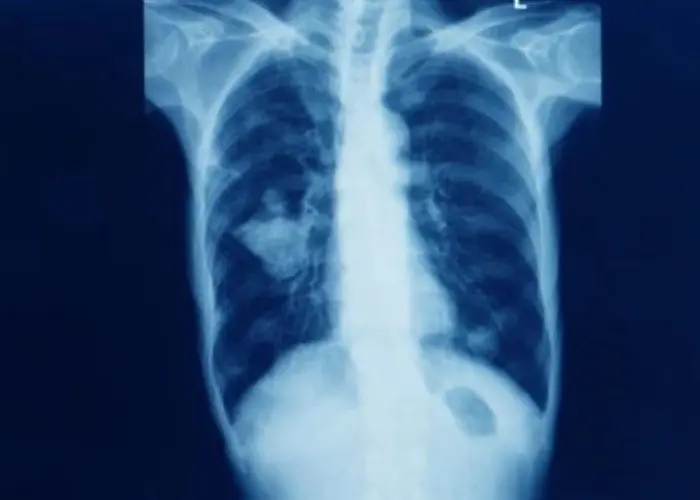
Carcinoma of unknown primary

Stuttering

Pelvic organ prolapse

Indigestive Diarrhoea
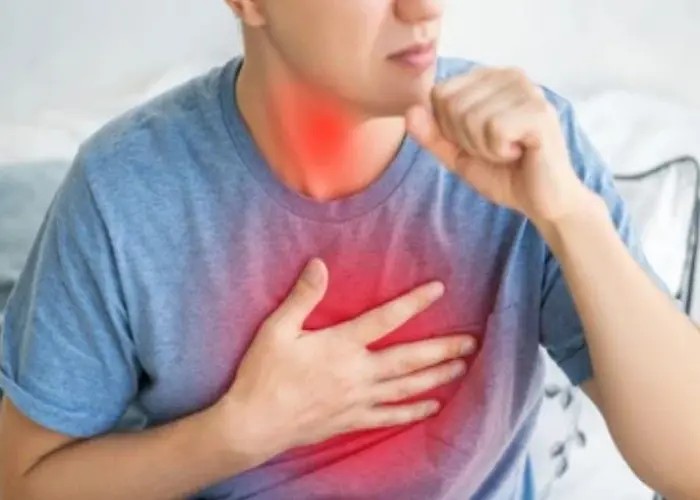
Chronic cough
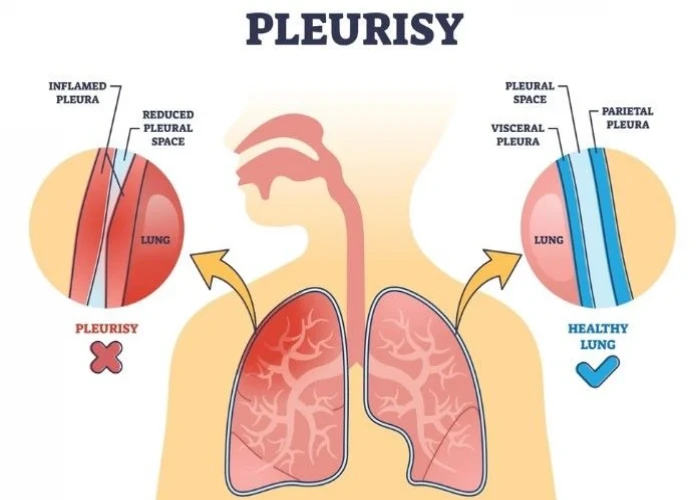
Pleurisy

Hyponatremia

Dislocated elbow
emphysema, এম্ফিসেমা
To be happy, beautiful, healthy, wealthy, hale and long-lived stay with DM3S.
